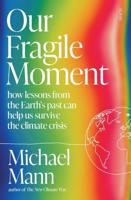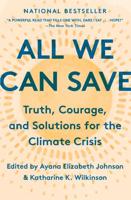Publisher's Synopsis
This book is a list of actions that should be taken to respond to our current global emergency, which is a result of developmental changes in the planet in its solar environment, as well as in the development of climate and the biosphere, and furthermore with the development of human cultures that have accelerated changes to the composition and stability of ecosystems and human settlements-to avoid catastrophe. Many catastrophes are longterm, large-scale, slow, incomprehensible, and invisible, and they have been developing for thousands of years. This requires a change in our perception and adoption of an attitude of catastrophe, which may be necessary before we can take any actions. It is also unlikely that we can respond just as individuals or turn over responsibility to a single agency or government. We have to work on every level, from individual and community to nations, confederations and a global government. Most of these suggested actions are based on a general knowledge of ecological change and human development. Many are based on the historical stability of traditional cultures, which have survived within a variety of limits, including weather, vegetative shifts and overuse of resources. Some are based on preliminary studies of long-term environmental changes and on human adaptability. Some are based on global ecological designs. A few are intelligent guesses, and a few may be expressions of a wild hope. Some of the actions may seem contradictory and counter-intuitive. Others, such as some new forms of taxes or rules of exploitation (especially regarding pollutions and biocides), are only temporary and are meant to achieve a quick effective balance; when they are no longer necessary or useful, they can be removed. And, still others, such as an ecological basis of exploitation and distribution, recognition of real ecological, psychological, and social limits, and new forms of conflict resolution, may be always necessary as part of a complete human ethics, economics and politics. These actions depend on a massive, cooperative effort. They promise a greater equalization of opportunities to use resources that are becoming more rare and expensive. They use openness and a joint sense of responsibility. However, these are just suggestions to be tried and refined-then discarded or supplemented by others. Any plan for emergencies has to be flexible and adaptable. It is crucial to avoid committing to actions that make things worse. This effort does not mean that we should stop working or give up our jobs and dig holes to hide in, but it does mean that some jobs and some industries should be abandoned, and others need to be created and applied; and it means that every effort needs to be tied to the long-term goal of designing and making the planet habitable for all forms of life. It does entail sacrifice, but most sacrifice can be borne if everyone is participating and if the goals are shared and desirable. As with any medical approach, we have to let the planet and biosphere do most of the work to be successful, although our participation, restraint and cocreation are critical, now. This approach uses a eutopian framework based on the forms and values of traditional cultures, applied ecological systems reasoning, global ecological design, and common sense to propose emergency actions, to avoid converging catastrophes and to restore balance to the planet. The framework requires new institutions, laws, and taxes to promote equity between individuals, communities and nations.









